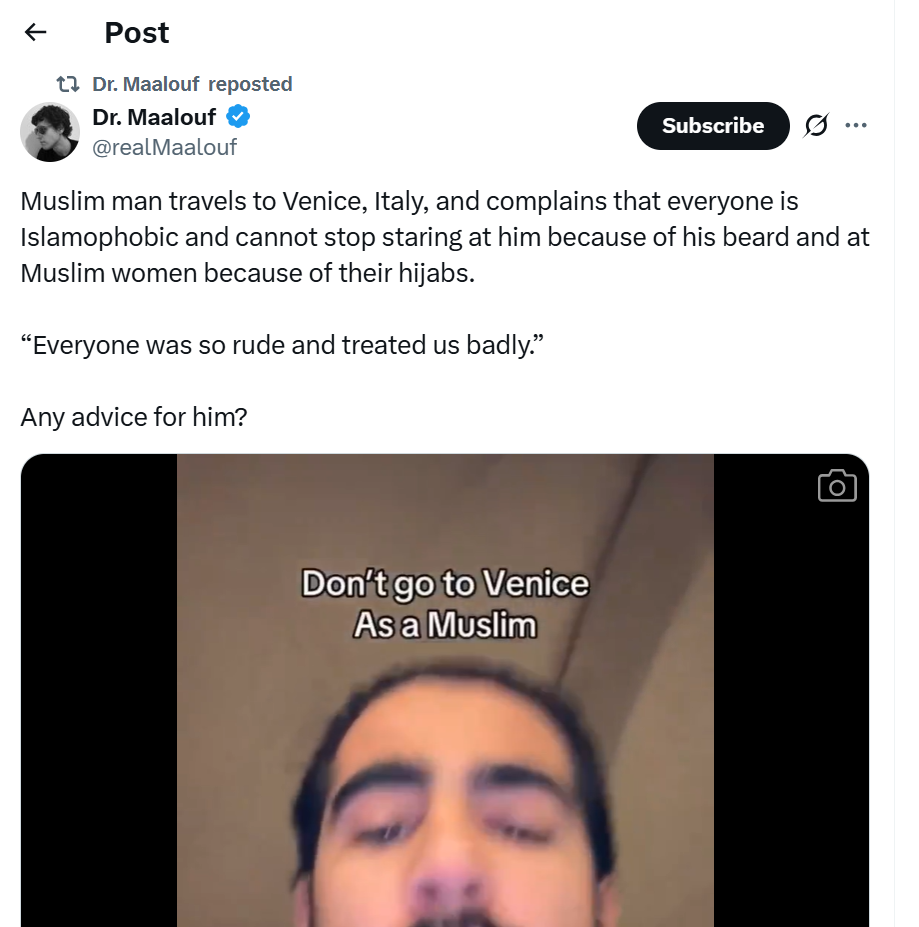
However, it’s also important to recognize that perception and context matter. In tourist-heavy cities like Venice, people-watching and cultural curiosity are normal, and not all stares equate to hostility. Traditional clothing such as hijabs or long beards may attract attention simply because they are less familiar in certain areas—not necessarily because of Islamophobia. That said, if tourists feel consistently disrespected, dismissed, or singled out, it reflects a broader need for awareness and sensitivity among locals toward the diverse backgrounds of visitors. Hospitality, especially in globally renowned destinations, should be inclusive of all cultures.
 At the same time, travelers also carry a responsibility to approach new environments with openness rather than assuming hostility at every turn. While bias and ignorance can exist anywhere, generalizing an entire city or country as “rude” or “Islamophobic” may prevent meaningful cultural exchange. Misunderstandings go both ways—locals may not be used to Muslim customs, just as Muslim travelers may misread unfamiliar social cues. Building bridges requires patience and perspective from all sides. Mutual respect, rather than defensiveness or sweeping accusations, is the key to breaking down stereotypes and fostering genuine understanding.
At the same time, travelers also carry a responsibility to approach new environments with openness rather than assuming hostility at every turn. While bias and ignorance can exist anywhere, generalizing an entire city or country as “rude” or “Islamophobic” may prevent meaningful cultural exchange. Misunderstandings go both ways—locals may not be used to Muslim customs, just as Muslim travelers may misread unfamiliar social cues. Building bridges requires patience and perspective from all sides. Mutual respect, rather than defensiveness or sweeping accusations, is the key to breaking down stereotypes and fostering genuine understanding.




 click and follow Indiaherald WhatsApp channel
click and follow Indiaherald WhatsApp channel